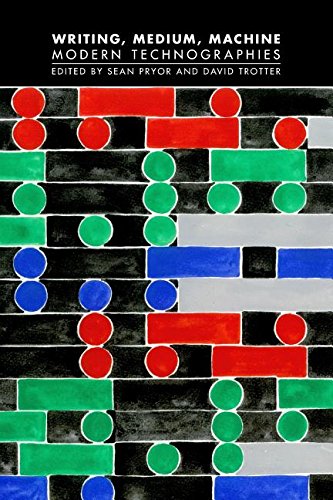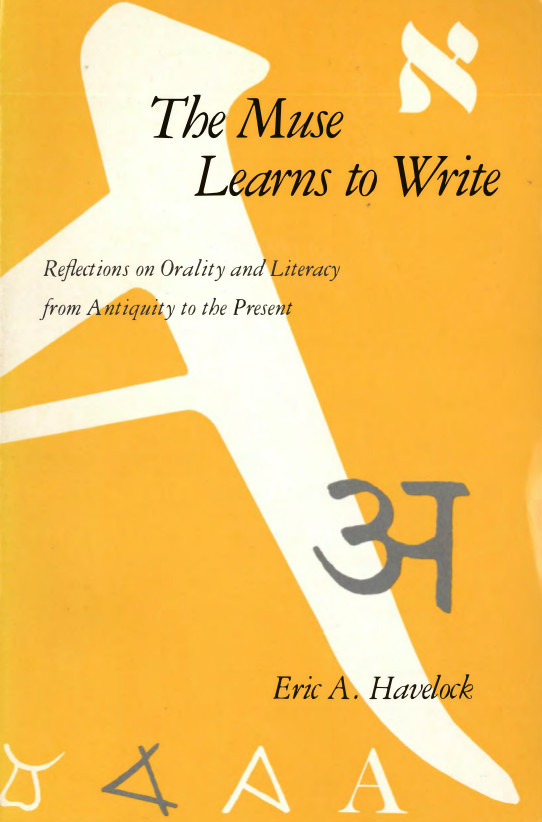Marcello Vitali-Rosati: On Editorialization: Structuring Space and Authority in the Digital Age (2018)
Filed under book | Tags: · algorithm, authority, digital media, editing, editorialization, media, open access, public space, space, web, writing

“In this book Marcello Vitali-Rosati examines how authority changes in the digital era. Authority seems to have vanished in the age of the web, since the spatial relationships that authority depends on are thought to have levelled out: there are no limits or boundaries, no hierarchies or organized structures anymore. Vitali-Rosati claims the opposite to be the case: digital space is well-structured and material and has specific forms of authority. Editorialization is one key process that organizes this space and thus brings into being digital authority. Investigating this process of editorialization, Vitali-Rosati reveals how politics can be reconceived in the digital age.”
Publisher Institute of Network Cultures, Amsterdam, 2018
Theory on Demand series, 26
Creative Commons BY-NC-ND 4.0 International License
ISBN 9492302209, 9789492302205
114 pages
Sean Pryor, David Trotter (eds.): Writing, Medium, Machine: Modern Technographies (2016)
Filed under book | Tags: · literature, machine, media, media archeology, media technology, technology, theory, writing

“This is a collection of thirteen scholarly essays which explores the mutual determination of forms of writing and forms of technology in modern literature. The essays unfold from a variety of historical and theoretical perspectives the proposition that literature is not less but more mechanical than other forms of writing: a transfigurative ideal machine. The collection unearths representations in literature and film of a whole range of decisive technologies from the stereopticon through census-and slot-machines to the stock ticker, and from the Telex to the manipulation of genetic code and the screens which increasingly mediate our access to the world and to each other. It also investigates concepts which articulate the relation between writing and technology: number, measure, encoding, encryption, the archive, the interface.”
Contributors: Ruth Abbott, John Attridge, Kasia Boddy, Mark Byron, Beci Carver, Steven Connor, Esther Leslie, Robbie Moore, Julian Murphet, James Purdon, Sean Pryor, Paul Sheehan, Kristen Treen.
Publisher Open Humanities Press, 2016
Technographies series
Creative Commons BY-SA 4.0 License
ISBN 9781785420061
223 pages
PDF (updated on 2016-11-12, with bookmarks, metadata and compressed, via Malcolm Dean, 2 MB)
PDF (from publisher, 3 MB)
Eric A. Havelock: The Muse Learns to Write: Reflections on Orality and Literacy from Antiquity to the Present (1986–) [EN, ES]
Filed under book | Tags: · greece, literacy, orality, rhetoric, writing

“When oral culture becomes literate, in what way does human consciousness itself change? And how does the new form of communication affect the content and meaning of texts? In this book, one of the most original and penetrating thinkers in Greek studies describes the transformation from orality to literacy in classical times and reflects upon its continued meaning for us today.”
Publisher Yale University Press, 1986
ISBN 0300037414, 9780300037418
144 pages
via x
Reviews: Richard Leo Enos (Rhetoric Society Quarterly 1987), T. J. Winnifrith (Classical Review 1988), Elizabeth Duke (Phil & Lit 1990), J.M. Foley (Choice, n.d.).
The Muse Learns to Write (English, 8 MB)
La musa aprende e escribir (Spanish, trans. Luis Bredlow Wenda, 1996, 3 MB)

